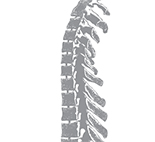Arteriovenous malformations = Tangle of abnormal blood vessels in the brain or spinal cord
AVM are rare, complex vascular structures that can occur within the parenchyma (ie pial malformations), dura, or both. Most commonly patients present with seizures or symptoms resulting from hemorrhage.
Presentation:
- Hemorrhage- 53%
- Seizures- 20-25%
- Headaches
- Learning disorders- thought to be secondary to direct injury or vascular steal phenomenon
Natural history
- Following a hemorrhage- 7% risk of rupture for that year (returns to baseline after 3 years)
- Annual lifetime risk of hemorrhage: 2-4% chance/year
- Mortality rate 1% per year
- Combined major morbidity and mortality rate 2.7% per year
Hemorrhage risk factors
- Prior hemorrhage, AVM size (controversial but small AVM are thought to have a higher bleeding risk), deep or inadequate venous drainage, intranidal aneurysms, HTN, periventricular location
Hemorrhage Outcome
- Mortality: 5-30%
- Morbidity: 20-30%
